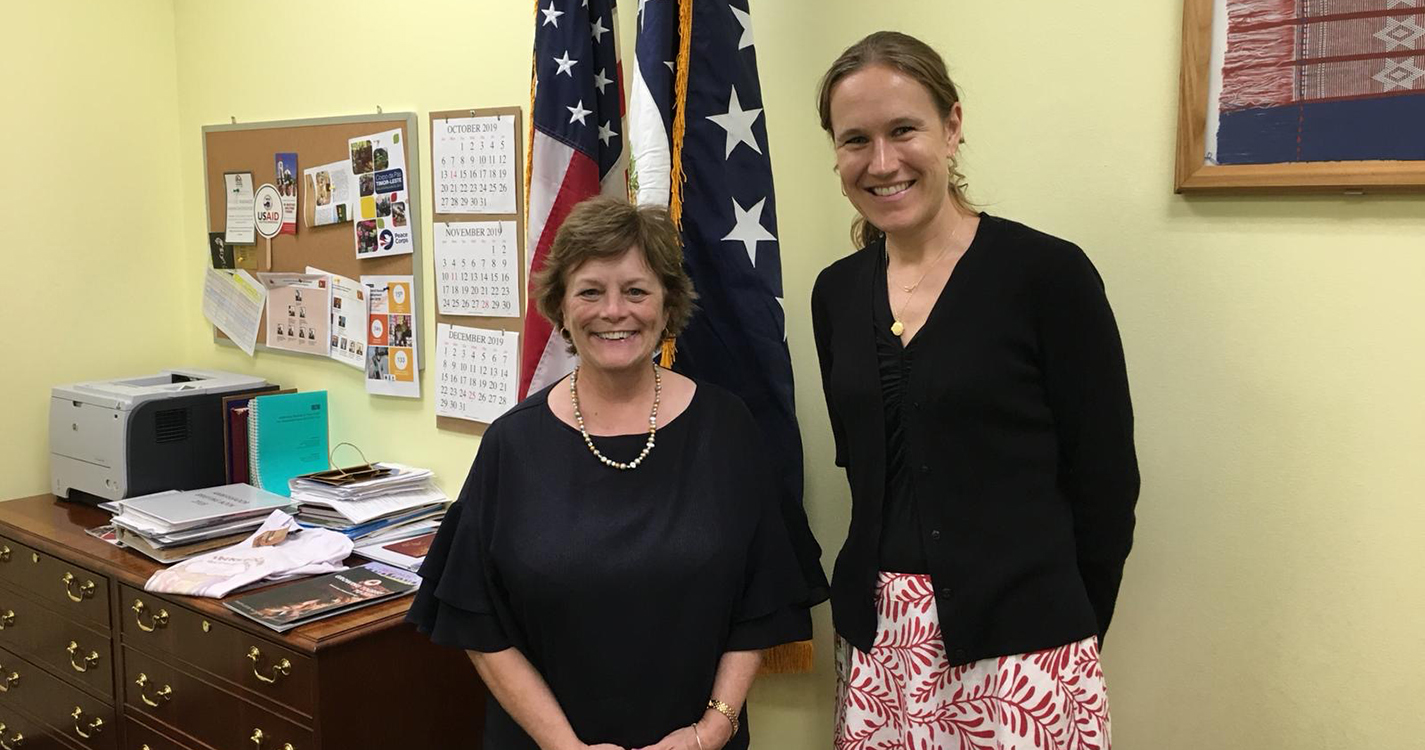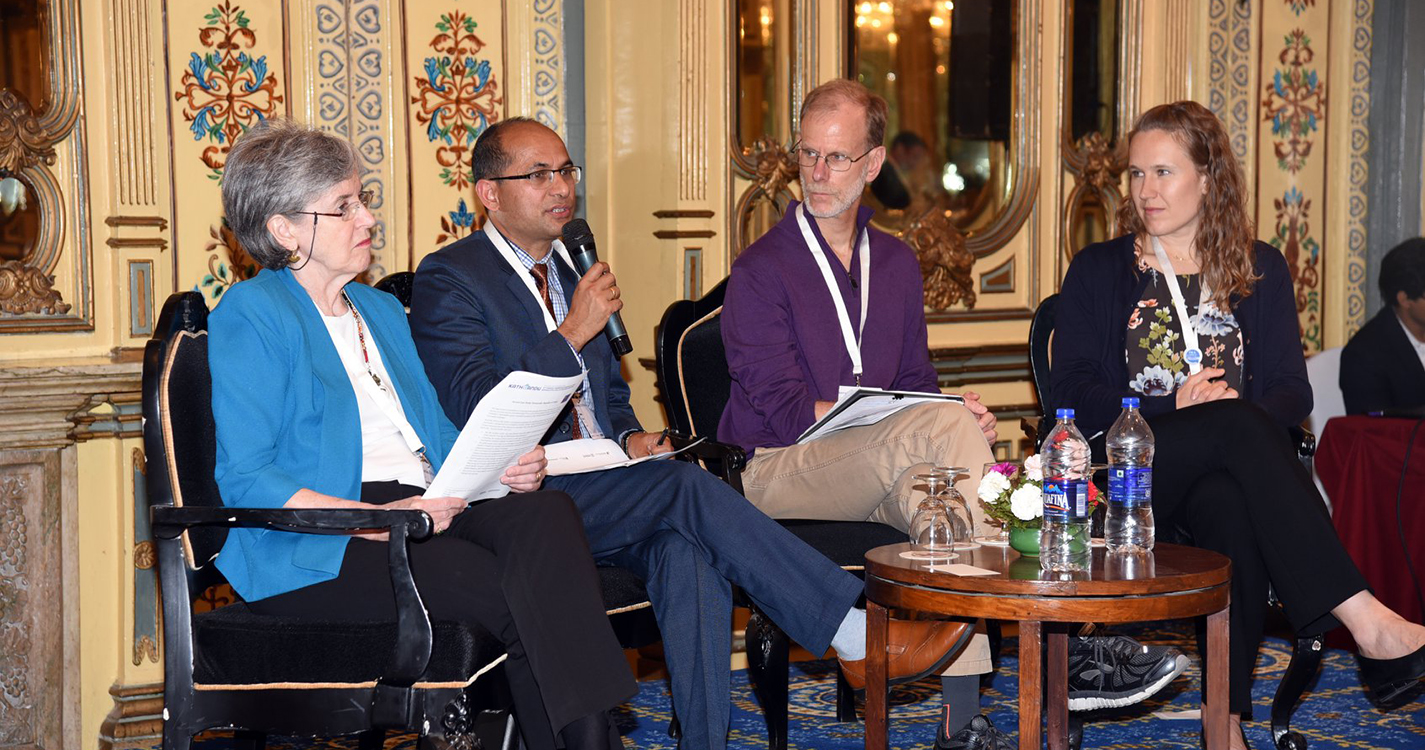Before attending Willamette University, Kimberly Cole ’02 knew one thing: She wanted to become an international studies major.
She didn’t immediately have a career in mind. She just hoped it would be adventurous and full of travel.
Turns out she was right.
Cole has worked in 22 countries, been involved in the global fight to control Ebola, Zika and COVID and is now responsible for one of her largest projects to date — a $75 million initiative through the U.S. Agency for International Development (USAID) that helps reduce maternal, newborn and child mortality and morbidity rates in over 30 high-burden countries.
Cole’s career has largely concerned family planning and reproductive health, aiming to understand and address the differences in maternal and child mortality rates. Despite witnessing worldwide momentum in this field, she says so much more needs to be done. Inequalities continue to exist, whether it’s poverty in West Africa or disparities among traditionally marginalized groups like indigenous women, all of which impacts health outcomes.
“Addressing reproductive health disparities and improving access to voluntary family planning can save lives,” she said. “The evidence is very clear about that.”
Fulfilling a dream in the Peace Corps
At Willamette, Cole fed her love for travel through summer and semester abroad experiences in Ecuador, Chile and Spain, which helped her achieve a Spanish major. But she was torn between interests in diplomacy and public health, even as she applied to graduate school.
Cole decided on an M.P.H. in Global Health at the University of Washington in Seattle, believing the post-degree careers had the potential to make an impact. She simultaneously pursued the Peace Corps Master’s International Program (and later earned a second master’s degree in public policy and management from the University of London.)
Referring to the Peace Corps as “America’s best foreign policy tool,” she provided technical support for an HIV treatment center in the Dominican Republic and gained academic credit on the side.
“It’s the best way for any aspiring international development professional to gain empathy for citizens from the countries they will work with later in their careers, since volunteers live side-by-side and at a similar economic level as their neighbors,” she said.
Once she finished the Peace Corps with her husband, Nate Cole ’02, her longtime hope for more international work — initially sparked through study abroad — finally took shape.
Global reach
In 2008, she became a program associate for EngenderHealth in New York City, traveling nearly half the year to countries such as Tanzania to manage and provide technical support for various health programs, such as HIV and youth outreach.
Then, in 2012 — thanks in part to an internship she’d held in Washington, D.C., while at Willamette — USAID hired her for its Latin America and Caribbean Bureau in D.C.
As a family planning and reproductive health technical advisor, she initially oversaw a $3-million portfolio supporting a regional contraceptive initiative and HIV program until her role expanded in its Bureau for Global Health, which led her to advise on projects with budgets upwards of $96 million.
As Cole’s responsibilities grew, so did the value of her international studies degree. Politics classes improved her diplomacy skills, while history explained the events that shaped political, economic and health systems. Anthropology sharpened her understanding of the nuances of social norms, especially on complex topics like reproductive health, she said.
“Willamette prepared me to be a well-rounded, inquisitive and empathetic professional,” she said.
The academic connections she’d made at Willamette — such as Professor of Anthropology Peter Wogan, who was instrumental in growing her respect of and interest in other cultures — and friendships also sustained her during some of the most challenging times of her life, as has the compassion of USAID, she said.
Now a health development officer and senior technical advisor, Cole coordinates the agency’s role in the global effort to introduce a new injectable contraceptive, as well as contributing to the global Covid-19 response.
Like many Willamette students, she’s always been drawn to mission-driven work that supports people in need.
“One of USAID’s core values is to ‘advance human dignity globally,’ and this aligns with Willamette’s motto,” she said. “We are all interconnected and strength comes from diversity.”


